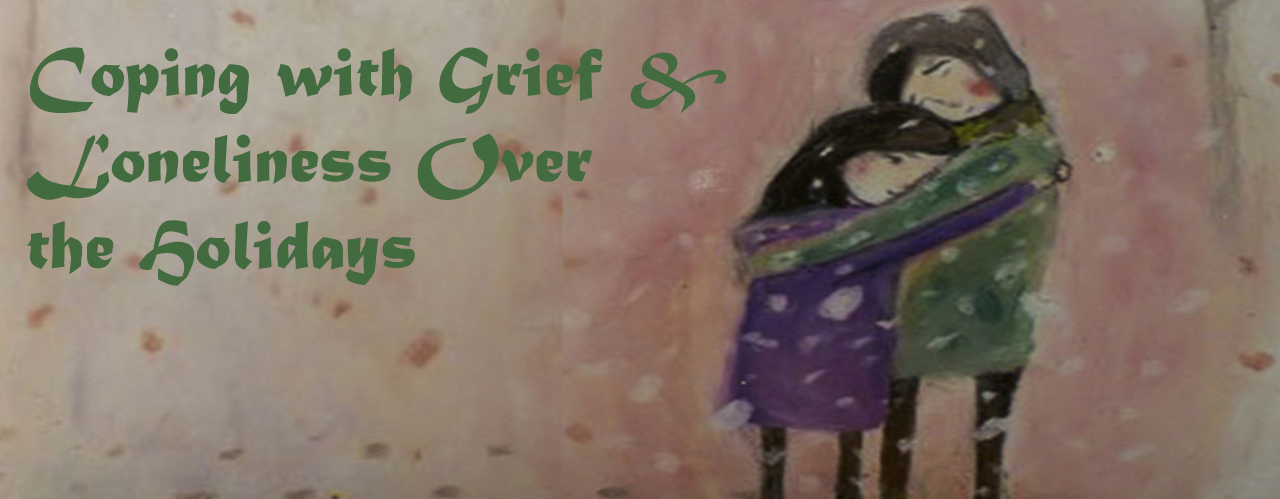Handling grief or loss over the holidays by Billy Graham Evangelistic Association (iStock photo)
"This is my comfort in my affliction, for Your word revives me" (Ps. 119:50, MEV).
Christmas isn't a joyful season for everybody. Grief—whether from loss, loneliness or both—crescendos around this time of year for many, and the deep, emotional pain can seem like almost too much to bear.
Isaiah 53:4 states, "Surely He has borne our griefs and carried our sorrows." Jesus carries as much of the burden as we let Him. But in addition to falling into our Savior's loving arms, here are five suggestions to ease your personal Christmas blues or empower you to help someone else dealing with grief and loneliness:
1. Be kind to yourself. Billy Graham likens the death of a loved one to major surgery. But that can also be true regarding the death of a relationship, say a divorce. Healing from any medical operation takes time, and so does finding a new way of life after losing someone close. Leave the decorations in the attic this year if you need to. Find another family member to host Christmas dinner. Most importantly, perhaps, allow yourself to cry—or even scream—out to God as you process. David did in Psalm 61:2. Jesus wept when his friend Lazarus died (John 11:1-44). Your tears aren't a sign of faithlessness. They're a natural and necessary response to your loss. Let God heal you (Matthew 11:28).
- Why am I having such a hard time with grief? Billy Graham answers.
- I know my husband is in heaven, but how can I get over the pain of his death? Billy Graham answers.
- Audio: Hear Billy Graham talk about "the rest that endures."
2. Adjust your expectations. Anticipate Christmas will be different without your loved one and be proactive about your emotional health. Don't live in fear of your emotions, but take stock of your heart, especially before logging onto Facebook or other social media. Feelings of loneliness have a way of intensifying when you're bombarded by social media posts of your friends apparently having a grand time. Sign off for now if you need to.
If you find yourself in the comforter role this Christmas, keep your words washed in love and extend grace. Whether Uncle John has been gone for seven days, seven months or seven years, your aunt still misses him. Don't wonder (especially aloud) how she can still be sad after all these years. "How are you holding up?" is typically a safe question when talking with someone who has experienced loss. Check out the Sharing Hope in Crisis course from the Billy Graham Rapid Response Team if you're interested in in-depth training for these sensitive situations.
- Is it a sin to feel like Christmas will be different this year without my loved one? Billy Graham answers.
- Billy Graham's Answer: Offer compassion, not judgment to those grieving
3. Reach out. Sometimes the best way to lift your spirit is by helping someone else. Isolation turns your focus inward. Instead, volunteer with a local church, serve dinner to the homeless or walk your elderly neighbor's dog. Do something to serve. Additionally, if you're aching to have Christmas dinner with others, ask to join a family member, friend or someone in your church. Remember, it's never a bad idea to offer to bring a dish, supplies or help with cleanup. Alternatively, if you know someone dealing with grief or loneliness, do your part. Give the gift of your time (Galatians 6:2).
- Billy Graham's Answer to fighting loneliness at Christmastime.
- Why are people so thoughtless at Christmastime? Billy Graham answers.
- How can I help my friend who is facing divorce? Billy Graham answers.
- How should I pray for a dying friend? Billy Graham answers.
4. Say something. Memories linger in your loved ones' absence. Remember the funny stories. Share them. Laugh and cry with your family members and friends as you reminisce. Or don't. If there aren't good memories or it's just too soon, consider finding new traditions and ways to focus forward. If you're on the outside looking in, don't feel compelled to change the subject if someone mourning brings up good memories about the deceased. Operate cautiously and with sensitivity but above all else be a good listener and don't mind the tears. Memories are precious gifts from God, and they are one of the few ways a loved one's legacy lives on.
5. Cling to the promises of God. Especially when you don't feel like it. Consider John 14:18, which says: "No, I will not abandon you or leave you as orphans in the storm—I will come to you." You might feel forgotten by people, but you aren't forgotten by our heavenly Father. God is here. He sees you grieving. He wants to comfort you. Remind others of that truth. If you aren't familiar with His promises, start by finding peace with God.
- Why would God care about us when the universe is so big? Billy Graham answers.
- Why won't God just go ahead and take me to heaven? Billy Graham answers.
Some quotes from Billy Graham on grief:
- "With Christ as your Savior and constant Companion, you, although alone, need never be lonely."
- When we grieve over someone who has died in Christ, we are sorrowing not for them but for ourselves. Our grief isn't a sign of weak faith, but of great love."
- "It is our Lazarus tomb dark and foreboding and drenched with bitter tears, but it is there that we meet our Lord who brings life from death and gladness from the very tomb of bereavement. Christ can give rest in the midst of sorrow."
- "If there is something we need more than anything else during grief, it is a friend who stands with us, who doesn't leave us. Jesus is that friend."
For the original article, visit billygraham.org.



